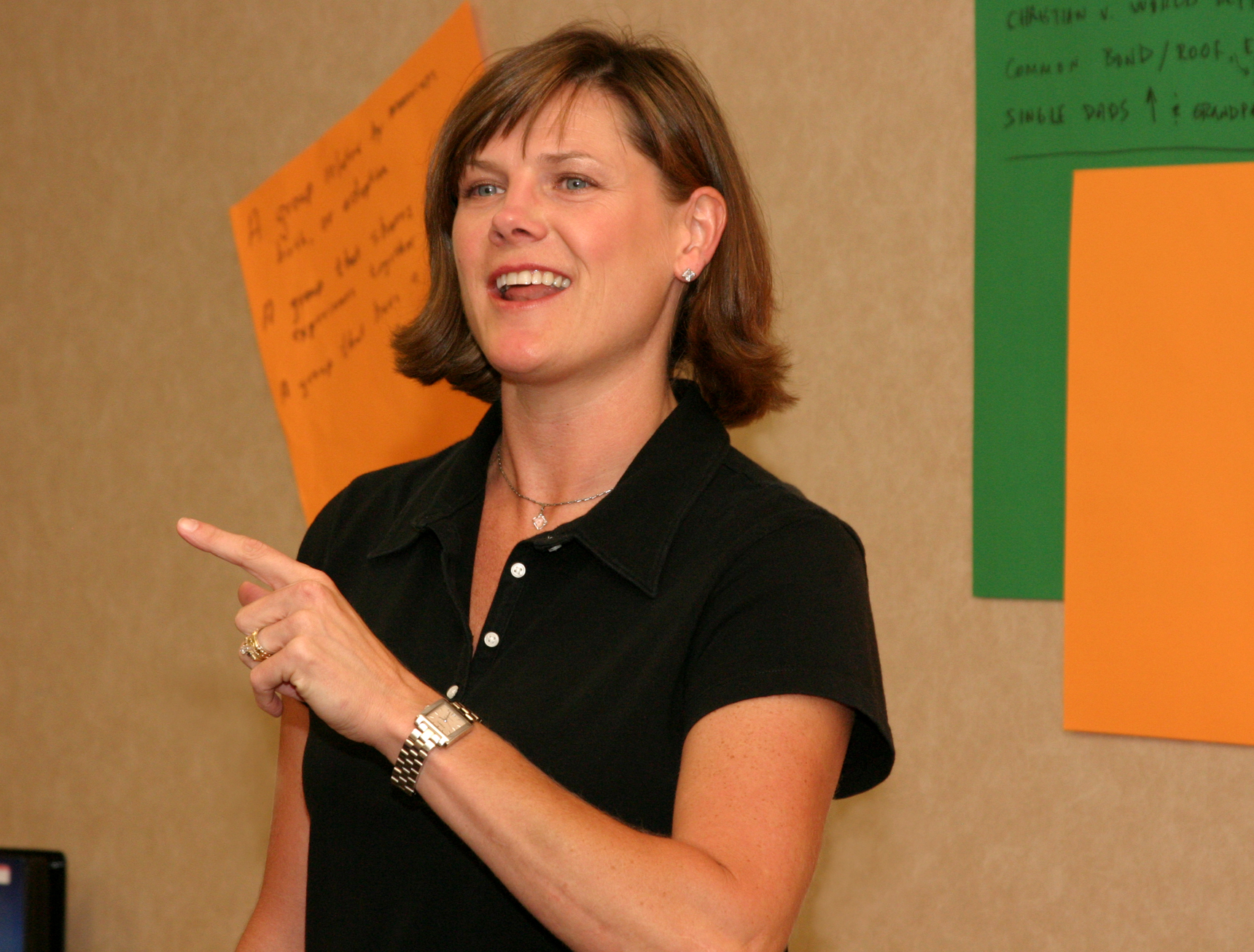
GLORIETA, N.M. (BP)–Mom, dad and kids. Three single roommates sharing a house. An unwed teenager with a baby. Three generations living under one roof. A widowed father raising a daughter.
Are these all families? It depends whom you ask. The Southern Baptist Convention’s Baptist Faith and Message statement defines the family as “persons related to one another by marriage, blood, or adoption.”
Families, in all their forms, need a church family, said Cindy Sneed, a licensed professional counselor and mental health services provider from Franklin, Tenn., who led a four-part workshop on “Ministering to Families” during Sunday School Week at LifeWay Glorieta Conference Center.
Children’s ministers today are being asked more often to provide spiritual direction not only for the needs of children but also for the children’s families, Sneed said, noting that the title “minister to children and their families” is becoming more popular.
“We are pretty clear on what we think God means about a family –- married parents with children,” Sneed said. “But what about a widowed parent and children? What about a divorced parent with children? What about a couple who has no children? The lines begin to blur.”
Asked to define a family based on what they observe in society, workshop participants provided such answers as: a group that shares life experiences together; a group that has a common bond; people living together who are related by marriage, blood or adoption; people who love and support each other; people who live together under one roof; moms, dads, kids, grandparents and cousins; brothers and sisters in Christ; people you don’t pick but have a relationship with anyway.
Asking about the kinds of families in their churches, the number of responses surprised the participants: traditional married couples with children they had together; couples with no children; single (widowed, divorced or never married) parents with children; blended families; grandparents raising grandchildren; biracial couples with birth children; empty nesters whose grown children have moved out; empty nesters whose grown children have moved back in; teen parents; multi-generational families; working families who see little of each other due to job situations; military families; children’s homes families; foster families; families with one or both parents in prison; families with members with special needs.
“See, we have all kinds of families in our churches,” Sneed said. “How are we going to minister to them? The needs are overwhelming.”
FAMILIES’ VULNERABILITY
One trait all of these families share, Sneed said, is vulnerability. Some may have more pressing needs than others, but every family has a point of crisis when a church can step in and make a difference.
“As churches, we need to be in the business of welcoming these vulnerable families into our fellowship,” Sneed said. “Where else will these families look when they need help?”
Why, though, is it so difficult for churches to reach out to hurting families? The answers hit hard, Sneed said: It takes a church being willing to step out of its comfort zone and reach out to families who may not be reaching out to the church.
Sneed mentioned The Next Door ministry founded by First Baptist Church in Nashville, Tenn., to help women coming out of prison. “During our first year we have worked with 50 women who, among them, have 144 children. Statistics tell us that more than 70 percent of women who come out of prison will be back in within six months. These families need help.”
When the women are released from prison, in many cases the only place they have to go is back to the situation they left -– drugs, prostitution and abuse. The six-month program offered by The Next Door gives these women a safe place to live, counseling and job skills training to help them get their lives back together and avoid being one of the 70 percent.
“I’m not going to stand here and tell you every one of these women makes it,” Sneed said. “They don’t. But a lot do and when they make it, their kids benefit too.”
FAMILY MINISTRY IDEAS
Sneed organized workshop participants into groups to imagine some ways they could minister to some of the vulnerable families in their churches. Among their ideas:
— For traditional families: Realize that no matter how it looks on the outside, no family is perfect. Any two-parent family could be six months away from becoming a single-parent family. Provide marriage seminars, parent-child classes, etc.
— For single-parent families: Provide budgeting and financial information, free or reduced-cost childcare, assistance with car maintenance, a “hot-line” with church members who can help when needs become overwhelming.
— For families with members with special needs: Make sure the church is handicapped-accessible with ramps, restrooms and elevators. Provide helpers to work one-on-one with children with special needs so they can be involved in Sunday School. Offer respite care so caregivers can have some time to shop, keep appointments or have some time to themselves.
— For military families: “Adopt” a base/post family whose own family lives far away; offer to help new military families get to know their new community. If a parent is deployed, provide help for the remaining parent akin to any other single parent.
All families need a church family’s love and support, Sneed said. “It’s not a question of whether we think their family is good enough or fits our definition of what is appropriate. We have a responsibility to minister to all these families and show them the love of Christ.”
Comparing the church to emergency rooms that are required under law to provide treatment regardless of an individual’s ability to pay, Sneed asked, “Wouldn’t it be something if our churches had the same requirements for spiritual health and stabilization for people and families in crisis? Our churches would be required to do their best to meet the needs of anyone who asked for help. If we couldn’t help, it would be our responsibility to help them find someone who could.”
–30–
LifeWay Christian Resources of the Southern Baptist Convention sponsored Sunday School Week June 27-July 1 at LifeWay Glorieta Conference Center in New Mexico.















